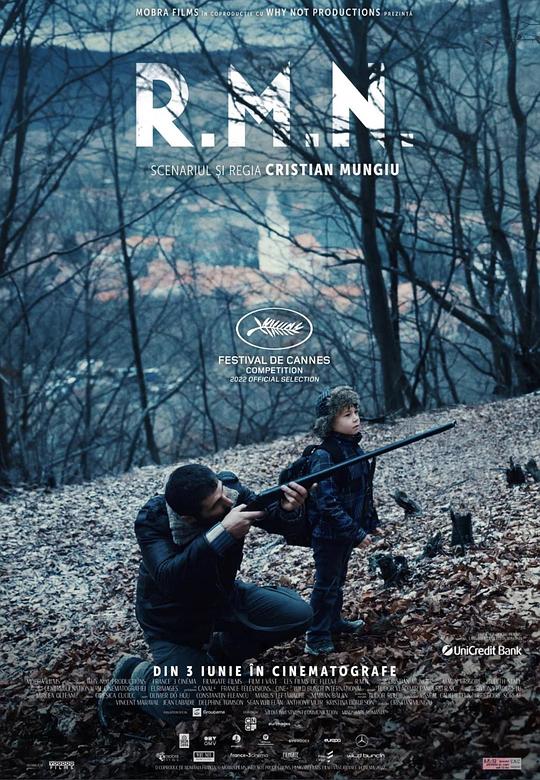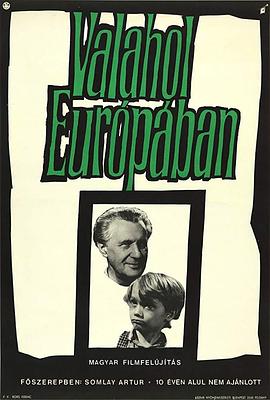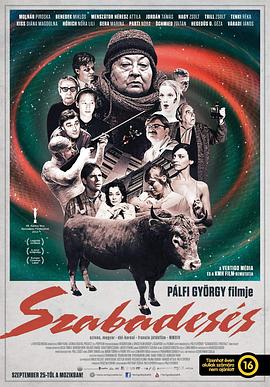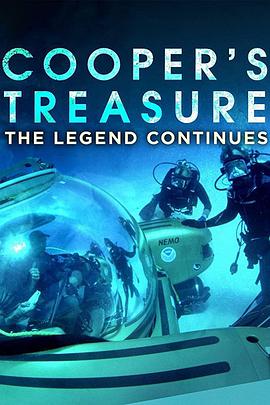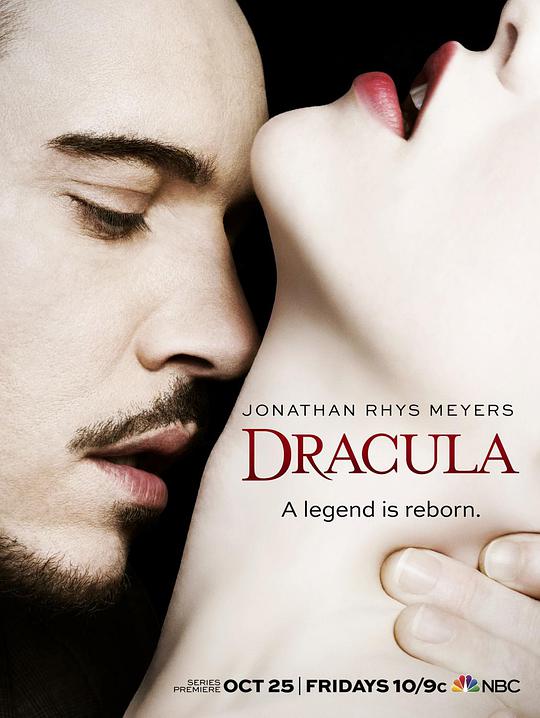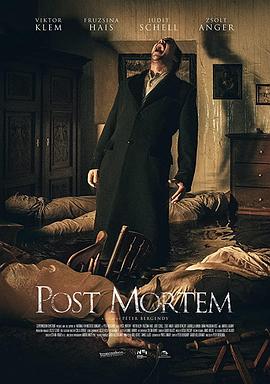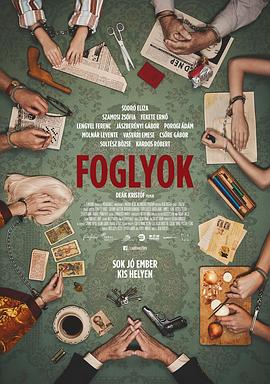-
备注:已完结
类型:剧情片
主演:Artúr Somlay Miklós Gábor Zsuzsa Bá
语言:其它
年代:未知
简介:Somewhere in the remote region, the war ends. In the midst of ruined cities and houses in the streets, in rural hamlets, everywhere where people still live, are children who have lost their homes and parents. Abandoned, hungry, and in rags, defenseless and humiliated, they wander through the world. Hunger drives them. Little streams of orphans merge into a river which rushes forward and submerges everything in its path. The children do not know any feeling; they know only the world of their enemies. They fight, steal, struggle for a mouthful of food, and violence is merely a means to get it. A gang led by Cahoun finds a refuge in an abandoned castle and encounters an old composer who has voluntarily retired into solitude from a world of hatred, treason, and crime. How can they find a common ground, how can they become mutual friends The castle becomes their hiding place but possibly it will also be their first home which they may organize and must defend. But even for this, the price will be very high. To this simple story, the journalist, writer, poet, scriptwriter, movie director, and film theoretician Béla Balázs applied many years of experience. He and the director Géza Radványi created a work which opened a new postwar chapter in Hungarian film. Surprisingly, this film has not lost any of its impact over the years, especially on a profound philosophical level. That is to say, it is not merely a movie about war; it is not important in what location and in what period of time it takes place. It is a story outside of time about the joyless fate of children who pay dearly for the cruel war games of adults. At the time it was premiered, the movie was enthusiastically received by the critics. The main roles were taken by streetwise boys of a children's group who created their roles improvisationally in close contact with a few professional actors, and in the children's acting their own fresh experience of war's turmoil appears to be reflected. At the same time, their performance fits admirably into the mosaic of a very complex movie language. Balázs's influence revealed itself, above all, in the introductory sequences an air raid on an amusement park, seen in a montage of dramatic situations evoking the last spasms of war, where, undoubtedly, we discern the influence of classical Soviet cinematography. Shooting, the boy's escape, the locomotive's wheels, the shadows of soldiers with submachine guns, the sound of a whistle—the images are linked together in abrupt sequences in which varying shots and expressive sharp sounds are emphasized. A perfectly planned screenplay avoided all elements of sentimentality, time-worn stereotypes of wronged children, romanticism and cheap simplification. The authors succeeded in bridging the perilous dramatic abyss of the metamorphosis of a children's community. Their telling of the story (the scene of pillaging, the assault on the castle, etc) independently introduced some neorealist elements which, at that time, were being propagated in Italy by De Sica, Rossellini, and other film artists. The rebukes of contemporary critics, who called attention to formalism for its own sake have been forgotten. The masterly art of cameraman Barnabás Hegyi gives vitality to the poetic images. His angle shots of the children, his composition of scenes in the castle interior, are a living document of the times, and underline the atmosphere and the characters of the protagonists. The success of the picture was also enhanced by the musical art of composer Dénes Buday who, in tense situations, inserted the theme of the Marseilaise into the movie's structure, as a motive of community unification, as an expression of friendship and the possibility of understanding. Valahol Europaban is the first significant postwar Hungarian film. It originated in a relaxed atmosphere, replete with joy and euphoria, and it includes these elements in order to demonstrate the strength of humanism, tolerance, and friendship. It represents a general condemnation of war anywhere in the world, in any form.
-
备注:已完结
类型:喜剧片
主演:皮洛斯卡·莫尔纳 Miklós Benedek 塔马斯·约旦 Csab
导演:乔治·巴勒菲
语言:其它
年代:未知
简介:自殺不成的老婦人,屢次從頂樓一躍而下卻無法如願以償,只好再次跛腳步上公寓頂樓。每經過一層樓,便經過一段光怪陸離。七層樓,七種人生樣貌,詭異至極、毫無邏輯,以黑色幽默之姿一窺當代生活,笑看人性的虛偽及庸俗,笑到最後卻忍不住心底發毛。 匈牙利導演喬治帕爾菲二○○二年初試啼聲,便以處女作《田園風光》一炮而紅。其後的《百年癲狂》更顯瘋狂不羈,在坎城引發熱議。擅於揉合奇想與創意,以魔幻寫實著稱的喬治帕爾菲,新作《公寓瘋光》影像同樣奇幻詭譎,戲劇調度與剪輯美學更貼近夢境囈語。從喜劇、科幻到神話,從歡笑、驚悚到恐懼,在風格迥異的七部短片裡,導演也展現其對不同類型的遊刃有餘。
-
备注:已完结
类型:其他综艺
主演:Darrell Miklos 达雷尔·米克洛斯 Roger Miklo
导演:Phil Lott 菲尔·洛特 Ari Mark 阿里·马克
语言:英语
年代:未知
简介: 寻宝者达雷尔·米克洛斯(Darrell Miklos)打算寻找宇航员戈登·库珀(Gordon Cooper)在1963年从太空中发现的沉船。 戈登·库珀是20世纪60年代美国宇航局的宇航员,在执行任务时,他在加勒比海沿岸拍摄了一只饥饿的“变形虫”。库珀认为,它们一定是沉没的船只,包括克里斯托弗·哥伦布失踪的舰队,而这些照片将成为一张地图,用来发现现在躺在海底的丢失的宝藏。虽然库珀去世了,但他把他长期保守的秘密和藏宝图留给了一位密友。本系列讲述的是一群寻宝者潜入库珀50年前从太空拍摄到的地点,希望发掘海洋的秘密。
-
备注:已完结
类型:欧美剧
主演:乔纳森·莱斯·梅耶斯 托马斯·克莱舒曼 奥利弗·杰森-科恩 杰西卡·德
语言:
年代:未知
简介:故事发生在遥远的1890年,邪恶的吸血鬼德古拉化身成为成功美国企业家艾伦(乔纳森·莱斯·梅耶斯JonathanRhysMeyers饰)来到伦敦,他此行有两个目的,一是研究当时十分发达的电力科学,而是找到曾经的仇人,向其施以无情的报复。一次偶然中,艾伦遇见了名为米娜(杰西卡·德·高芙JessicaDeGouw饰)的年轻女子,让艾伦感到震惊的是,米娜的长相同他已经死去的妻子简直一模一样,而米娜也坚信,自己绝不是第一次见到眼前这个名叫艾伦的陌生男子。就在艾伦一步一步实现自己野心的同时,他的宿敌——吸血鬼猎人范海辛(托马斯·克莱舒曼ThomasKretschmann饰)也展开了他的行动,这一次,他们能否分出胜负呢?
-
备注:已完结
类型:剧情片
主演:Eliza Sodró 索菲娅·绍莫希 Ernõ Fekete 列文特
导演:克里斯托弗·迪克
语言:其它
年代:未知
简介:When Fuchs starts his new job as a teacher in a prison school, replacing the old and unconventional teacher Berger against her will, he is forced to confront his biggest fear, triggered by the mysterious, withdrawn inmate Samira.
